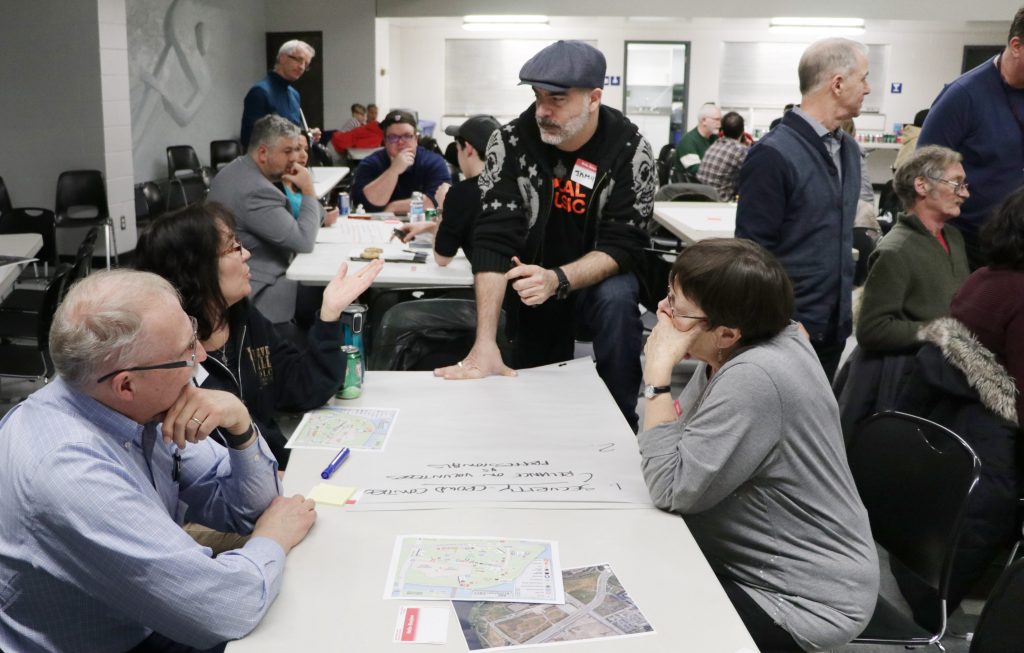Bluesfest Policy Change Gets Mixed Reviews
By Corey Price
Bluesfest organizers have revoked in-and-out privileges on all tickets and passes for the 2018 festival, prompting objections from some music fans — and skepticism from Somerset Coun. Catherine McKenney that the change will solve problems experienced by residents who live near the LeBreton Flats performance venue.
Bluesfest executive director Mark Monahan said the new policy is partially about consistency, as for years only certain tickets had in-and-out privileges.
“The other reasons are for ease of access at the gate and security reasons,” said Monahan.
The change is also a direct response to complaints about unruly crowds, injuries, and vandalism last year around the festival location near the Canadian War Museum.
Organizers began discussing possible changes to combat these problems during a Jan. 30 open house, and McKenney is planning further meetings as the July 5-15 festival approaches.
Monahan said the new policy was modelled after other music festivals and venues like the Canadian Tire Centre that do not allow in-and-out privileges.
He said that feedback from the open house saw no pushback against the change by patrons.
“I think it will minimize disruption during the event when people might go out and through the neighbourhood. Now they’ll be in, and they’ll come in once and leave once,”said Monahan.
But some doubt the planned changes will benefit patron safety or solve concerns among area residents.
“I don’t think that it will have any real measurable effect on what was happening on Booth Street for those residents,” said Somerset Coun. Catherine McKenney.
McKenney said nearby residents were faced with an unprecedented amount of vandalism and annoyances such as festival attendees urinating on private property.
“We got dozens and dozens of complaints, and it went on for the entire time Bluesfest was happening last year,” she said.
McKenney intends to hold more meetings with residents to find effective solutions, including fencing to protect property, an increased security presence and additional public washrooms.
“People were still frustrated,”said McKenney. “They still are, and they want to make sure that measures are put in place.”
One festival volunteer said the new policy could improve things somewhat.
Last summer, Colin Prentice – a Bluesfest attendee since 2012 – volunteered as an accreditation officer backstage, checking passes to see who could and couldn’t enter.
“It was like nothing I had ever worked before,” said Prentice. “I had to pretend that I was a security guard because they didn’t have enough. It was wild.”
Prentice described scenes of large groups rushing and knocking down fences, spectators threatening volunteers, and security guards injured by thrown rocks.
He said that revoking in-and-out privileges could benefit security, allowing guards to check people once and then be able to focus their attention elsewhere, rather than deal with a constant stream of ins and outs.
But Tabitha Hamon, a long-time festival-goer, said the policy change would be detrimental to patrons.
“It’s an inconvenience to people just for the cost of it,” she said. “You can’t leave to go get water, same goes for food. You’re going to need a lot more money to spend the whole day in the festival.”
Hamon also said anyone who may need to leave for work, personal reasons, or simply need a break from the festival will no longer have that opportunity, which may turn people off from attending.
Both Hamon and Prentice were skeptical the change would benefit neighbours in a significant way.
“You’re still going to have drunk people leaving. I think you could maybe lessen the number of situations that would occur, but it won’t get rid of the problem altogether,” said Prentice.
Monahan said the festival will announce further logistical changes in the coming months based on feedback from additional public meetings.

